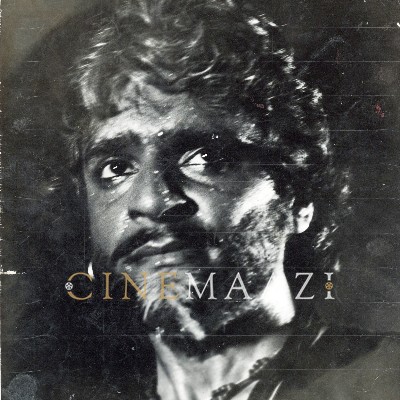M A Shaikh
Subscribe to read full article
This section is for paid subscribers only. Our subscription is only $37/- for one full year.
You get unlimited access to all paid section and features on the website with this subscription.
Not ready for a full subscription?
You can access this article for $2 , and have it saved to your account for one year.
- Real Name: Mohammad Ameeruddin Shaikh
- Born: 1928 (Bombay)
- Primary Cinema: Hindi
Our auditory experience of cinema is not limited to its memorable tunes but extends to the many iconic sounds we hear over the course of the narrative. While never at the forefront these sounds become inseparable from the overall experience. Sound recordists are the unsung heroes of the film industry, and one such personality was M A Shaikh. Known for his stellar collaborations with Yash Chopra, crafting the iconic soundscapes of Ittefaq(1969) and Deewaar(1975), Shaikh was a true luminary of the art.
Mohammad Ameeruddin Shaikh was born in Bombay. His father was chief parcel clerk in the railways and he was the only son. He studied Radio Engineering and had a diploma degree in it. He began his career as an electrician at the Central Studios. He was quick to learn the trade and was soon promoted to boom man under audiographer C M Pancholi. He shifted top Mehboob Studios in 1954 to become an assistant to sound recordist Kaushik. During this spell, he assisted in the sound recording of iconic films like Mother India (1957). He stayed there, learning the craft, for 14 years.
After his training was complete, Kaushik recommended Shaikh to B R Chopra who took him on as the sound recordist for the Rajesh Khanna-Nanda starrer Ittefaq(1969). Few people can claim to have won a Filmfare Award on their debut and M A Shaikh is one of them. After this seminal achievement, he never looked back. B R Chopra was quick to recognise his talent and signed him on for Aadmi Aur Insaan (1969). He became a regular collaborator of the Chopra brothers hereafter – working on classics such as Dastaan (1972), Dhund(1973), Daag(1973) and Joshila (1973). He also worked in Raj Tilak’s 36 Ghante, a remake of The Desperate Hours. He also worked on Ravi Chopra’s Zameer(1975).
The next monumental achievement of Shaikh’s career was the sound design of Deewaar(1975). The film is regarded as one of the most significant films of the 70s. It won Shaikh his second Filmfare Award for Best Sound Design. He was the audiographer for Ramesh Talwar’s hit Doosara Aadmi (1977). Other than films like Saath Saath (1982), Ram Tera Desh (1984), the Mithun Chakraborty action spectacle Kasam Paida Karne Wale Ki (1984) and Ramanand Sagar’s Salma (1985) his career mostly revolved around the Chopras’ productions. He played important roles in creating unforgettable films like Kabhie Kabhie (1976), Trishul (1978), Kaala Patthar (1979), Silsila(1981), The Burning Train (1980), Nikaah (1982) and Tawaif(1985). He continued working in the 90’s in films like Sailaab (1990), Daan Pratidaan (1992), Prem Yog (1994), Aunty No 1 (1998) and Dulhe Raja (1998). His last known film credit was in 2001’s Ek Aur Vishpot.
By all accounts a shy man he felt that technicians deserved more recognition for their work from the industry. He was married and had a daughter. He left an indelible mark on the cinema of the 70s and 80s, in particular, on the legacy of the Chopras.
-
Awards (2)

Filmfare Awards, 1976
Best Sound Design: Deewaar (1975)
Filmfare Awards, 1970
Best Sound Design: Ittefaq (1969)










.jpg)



